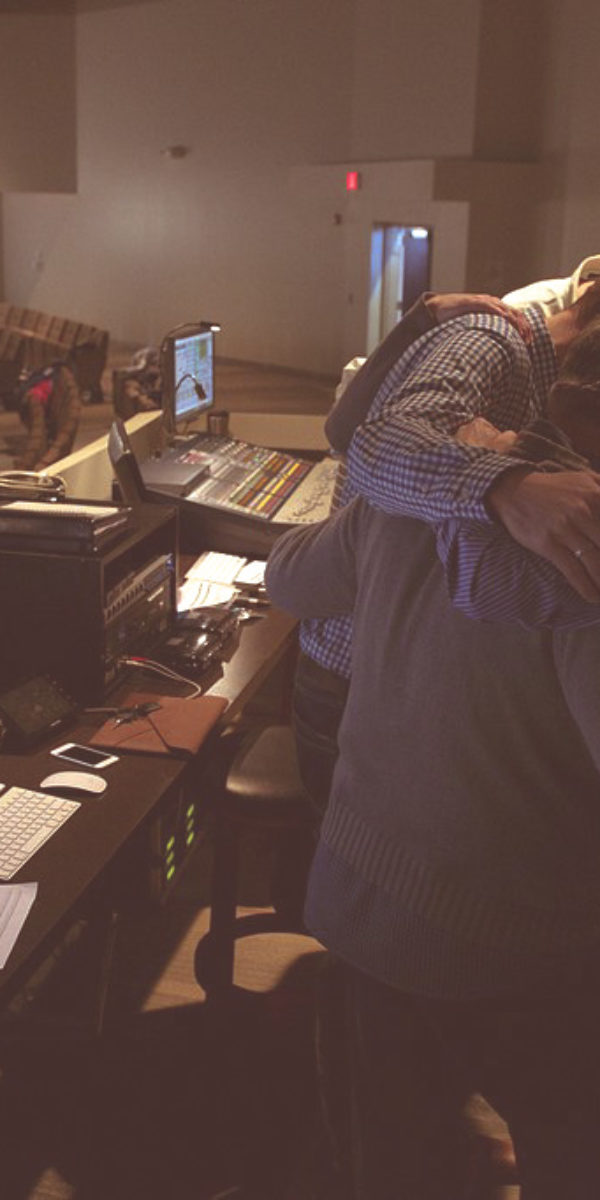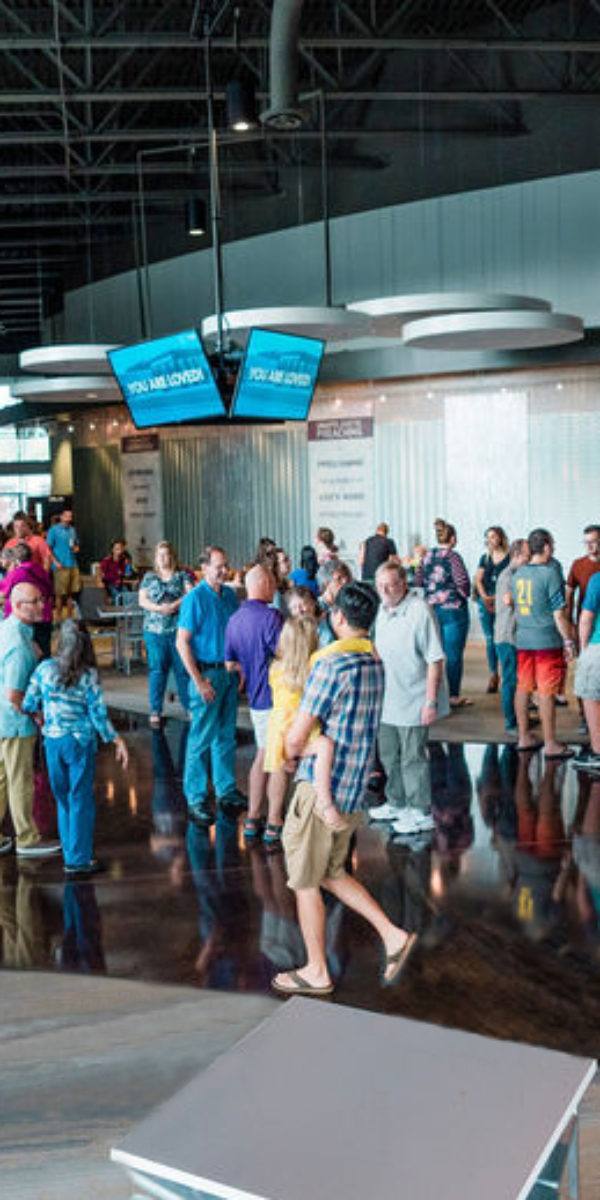
What We Do: Quick to Listen, Slow to Speak
Radiant Bible Church | 04.16.20
In Proverbs 24:10 we read, “If you faint in the day of adversity, your strength is small.” In these days, many have been swallowed up by fear and anxiety. Many have retreated to self-protection strategies. Many have turned inward. But this is not the way God’s children respond to trial. So, what do we DO as God’s children? What does it look like to stand firm in the faith? What does it look like to keep our eyes looking upward and outward? Over the next couple of weeks, we want to encourage you to pray, to love one another and to be quick to listen and slow to speak.
QUICK TO LISTEN, SLOW TO SPEAK
About a mile from my house there is a 4G dead zone between trees at the bottom of a hill. Whenever I am on the phone, I hit the gas on the top of the hill hoping to fly through the dead zone so I don’t drop the call. To make matters worse, the hill begins at the mailbox of a police officer. What are the odds of that? I’ve learned this is a spot for me to listen. If I’m trying to speak, my words are mumbled and the conversation is lost. But if I’m listening, at least I can go through the call without disrupting the conversation. Since I know this dead zone is coming, I carefully listen to the other side as I emerge from the bottom of the hill. Usually, the interference only lasts a few seconds and the conversation continues as normal. Other times, the disruption is bad enough that we begin talking over each other and awkwardly interrupt one another, desperately trying to regain clear lines of communication… “Can you hear me now?”
These last few weeks, we’ve been flying up from the bottom of the hill. Our lives have been disrupted. Our daily routines and weekly rhythms have been smashed. Life is all out of whack. As we strain to understand what’s going on in the midst of chaos and confusion, there’s an alarming number of people talking over each other and competing to be the loudest voice. Suddenly, everyone’s an expert. Everyone wants to be heard. Voices are everywhere. The noise is deafening.
Quick to Listen
As Christians, we have an incredible opportunity to step into the lives of one another and listen. The way I see it, COVID-19 is a timely opportunity to be a positive disruptor in the way we communicate. Our world is craving human interaction. Everyone has a story they want to share.
Let’s be honest, we’ve been practicing “social distancing” for a while. Through technology, our culture has grown increasingly comfortable with texting, scrolling, liking, following, posting, streaming… the list goes on. None of this is bad, but it can miss the human element and dulls relationships.
Instead of watching the next show on Netflix, scrolling on social media or texting someone to say you’re safe, what if we changed our tech-savvy habits of communication? I’m talking about old-school ways of face-to-face interaction. Go on a walk with your spouse, sit with your child on the couch, check in with your neighbor when you see them outside or meet a friend in their driveway with your window down:
“Hey, I was just thinking about you and I wanted to hear how you’re doing?”
“Yeah, this is crazy but I’m doing fine.”
“Honestly, nothing in the world is fine right now. I know there are some new, strange and challenging things for me. How are you really doing? How is all of this impacting you?”
PAUSE for awkward silence.
Now is the time to practice the art of listening.
First, listen longer than you think you should. Don’t jump in and take over at the first break in the sentence. Listening means you are hanging on to every word and carefully trying to hear not only what is said, but the things that aren’t said. Listen for tone. Listen for inflection. Listen for themes or topics that frequently surface.
Second, affirm the person with short statements like, “I know.” and, “Yes, me too.” Rather than guiding the conversation back to you, these statements reinforce the conversation so people will feel comfortable to share more. Remember, listen longer than you think you should.
Third, the final and most important thing to do is thank the person for sharing with you. If you care about this person, don’t leave them hanging, but open the door for future conversations.
“Thank you so much for sharing with me. I understand where you’re at. I so appreciate you taking the time to talk. I don’t think any less of you. This is good for me, too, as I’m also learning and processing these unique times myself. We need to do this again.”
Slow to Speak
When you do have an opportunity to speak, and you will, choose your words carefully. Instead of being frazzled, this is the time to speak reassuring words of hope, compassion and confidence. Let’s speak words of light into these dark and uncertain times.
“There are a lot of things happening around us that are extremely concerning and scary. But my faith is strong. And I’m leaning into the Lord right now because I believe that even through all of this, that God has a plan and that He is getting our attention. At my church we say we believe in a ‘Big God.’ I believe that God is bigger than all of this.”
The truth is, nobody expects you to have all the answers. Nobody thinks you are an expert on the global, medical, social and economic impact of COVD-19. Know yourself. Know how your family is doing. Know the changes that you’re experiencing and how life looks different right now. And most of all, know that God can use you during these times to speak truth to others.
We worship a God who speaks. Apart from His existence, the first thing we know about God is that He spoke and all of creation instantly obeyed His commands. Though God could certainly have the loudest voice and shout over the world, He has chosen to let us be His mouthpiece.
This is our time to speak. Speak slowly. Speak carefully. Speak wisely. Speak courageously.
Can you hear me now?


